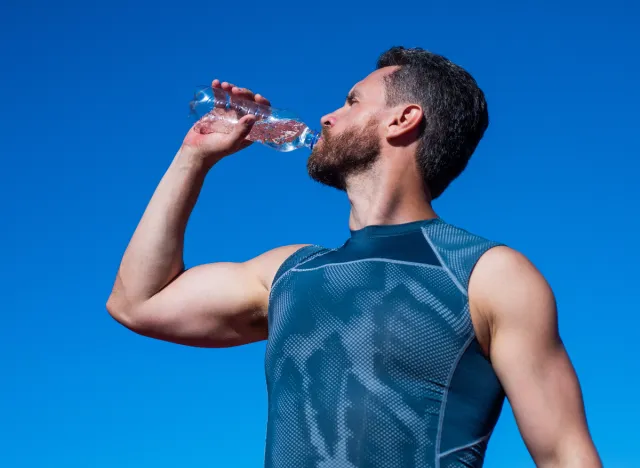The Most Crucial Drinking Habit for Your Kidneys

Your kidneys perform many necessary functions to keep your body working properly. For example, one major purpose of the kidneys is to remove waste products and excess fluid from the body through urination. But the kidneys can only do their job if you keep these vital organs healthy; without doing so, you can be at risk of serious kidney damage, disease, and more. To keep your kidneys in their best shape, there are certain habits you must maintain, one of which is an incredibly important drinking habit.
If you are at risk of kidney damage or other problems and are looking to keep them at their healthiest, the most crucial drinking habit for your kidneys is to stay hydrated by drinking sufficient levels of fluids.
Why staying hydrated is the most crucial drinking habit for your kidneys
According to the Mayo Clinic, dehydration can happen when you use or lose more fluid than you take in. When you don’t drink enough liquids, your body may not have enough water and other fluids in order to carry out all of its normal functions.
“Dehydration has negative side effects,” says Amy Goodson, MS, RD, CSSD, LD, author of The Sports Nutrition Playbook. “Like fatigue, headache, nausea, dry mouth, constipation, and can even contribute to a decrease in athletic performance. This makes regular fluid intake essential to overall health and wellness.”
Staying hydrated is also essential for kidney health. According to The National Kidney Foundation, water gives the push your kidneys need in order to remove waste from your blood in the form of urine. Drinking water also helps keep your blood vessels open, which allows your blood to travel freely to your kidneys. It also helps deliver essential nutrients to them. If you become dehydrated, then it is more difficult for this delivery process to work.
Dehydration can also cause a build-up of wastes and acids in the body, as well as potentially clog the kidneys with muscle proteins.
Determine how many fluids your body needs to stay hydrated

How you stay hydrated also depends on your body and its needs. Men typically need to drink more water than women. But, according to the Mayo Clinic, you may need to modify your water consumption for other factors, such as if you’re working out constantly, overall health, and pregnancy.
“While fluid intake varies from person to person, there are some rules of thumb to apply for adequate hydration,” explains Goodson. “For those with healthy kidneys, the general recommendation is 1.5 to 2 liters of fluid per day or 50 to 68 [fluid] ounces.”
Although this is a general rule of thumb, Goodson recommends using this formula to personalize your hydration needs:
“Take your weight in pounds and divide it by two,” she says. “Then drink that much fluid in ounces over the course of the day. So, if you weigh 150 pounds, then that would be 75 ounces. Then add 5-10 ounces of fluid for every 15-20 minutes of exercise.”
Along with various components of your physical body, such as gender, climate can be another factor in deciding how much you need to drink to stay hydrated.
“If you work outside in the heat and humidity and thus sweat more, then it is likely you will need more fluid,” says Goodson.
Tips to stay hydrated
How can you know if you’re drinking enough fluids throughout the day?
“An easy hydration test is to look at the color of your urine,” suggests Goodson.
You’ll want to see a pale yellow to clear color, which is typically considered hydrated. However, if you see an apple juice color or darker, that will tend to indicate dehydration. If your urine color is darker, it is likely that you need to drink more fluids.
If you’re tired of drinking only water throughout the day, the good news is that you can keep hydrated through various other beverages. The U.S. National Academies of Sciences, Engineering, and Medicine states that you can consume the recommended amount through fluids from water, other beverages, and food.
“Remember that all fluids (water, milk, sports drinks, tea, smoothies, etc.) count towards your total hydration,” says Godson. “Pretty much all beverages except alcohol, so you can use multiple fluid sources to stay hydrated.”
While “getting enough fluids” is a crucial drinking habit, it’s important to talk to your doctor about fluid intake if you have or are at risk for kidney disease of any kind, as the recommendations can vary accordingly.







